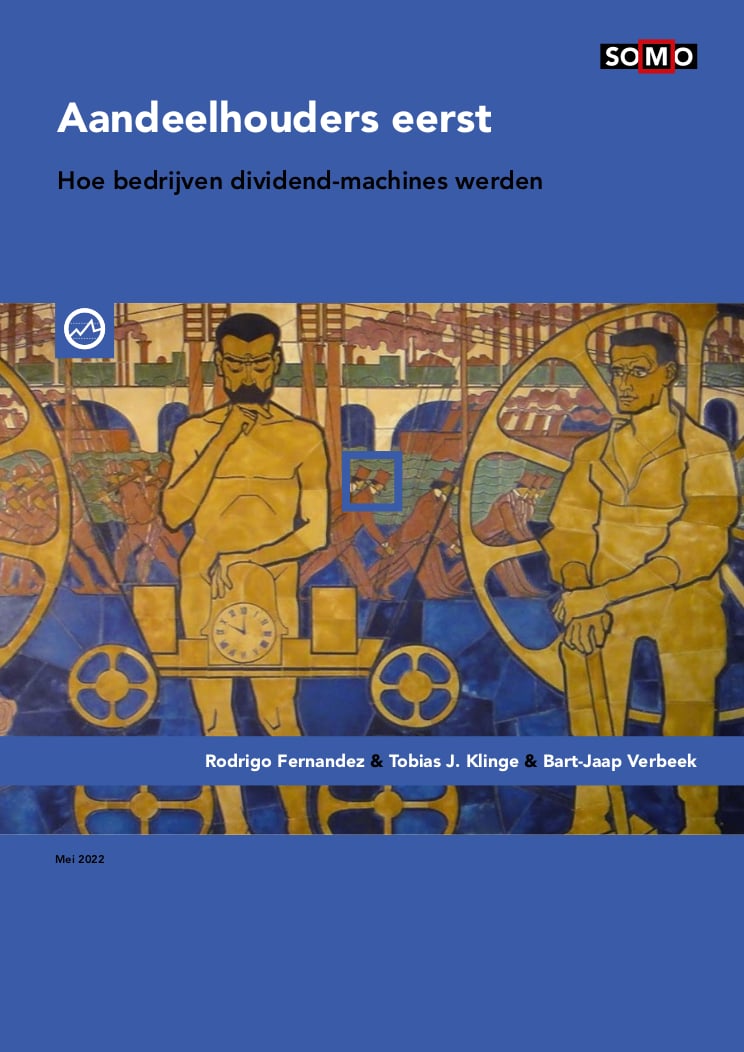Shareholders first: How companies became dividend machines
Listed Dutch companies have radically shifted their strategic focus in the past twenty years: maximising value for shareholders has become a dominant strategy. Employees, the climate, technological innovation, consumers or suppliers play an increasingly smaller role in what makes a company “successful”.
Research by SOMO, commisioned by FNV, has calculated that shareholder remuneration has increased by 500% over the past 20 years. Wages, on the other hand, increased by 50% in the same period. From producing goods and services, companies are mainly concerned with securing profits for shareholders. There is a ‘financialisation of companies.
This model of “shareholder capitalism” is also characterized by an increase in debt, while concrete investments lag behind. Between 2000 and 2020, the combined debts of the companies studied rose from €99.3 billion to €145.2 billion. With these debts, companies bought up their own shares in order to realise higher stock market prices, or they bought up other companies and their ‘goodwill’. There has been little investment in higher wages, in production capacity, R&D or climate measures. Since 2019, joint investments have not been enough to replace depreciation.
The higher payout to the shareholder is not a sign of a healthy company, but possibly the opposite; of companies being hollowed out to sustain the higher payout to the shareholder. It is a model that is likely to become increasingly difficult to sustain over time.
The researchers also see the large debt mountain as a real social risk.
Rodrigo Fernandez: “Companies took on their debts during a period of extremely low interest rates. These debts will soon have to be financed again, at a much higher interest rate. As a result, companies will borrow less and have even fewer resources for climate measures and other necessary investments.”






















